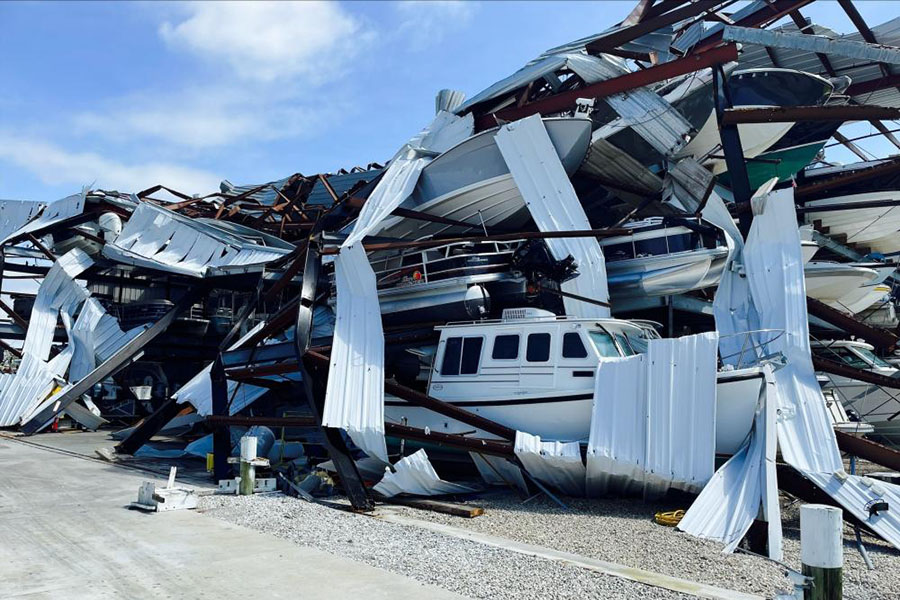

As many Floridians rebuild their lives in the aftermath of Hurricane Ian, the psychological toll of the storm may leave scars for years to come.
Florida State University Professor of Psychology Brad Schmidt studies the nature, causes, treatment and prevention of anxiety and associated issues such as post-traumatic stress disorder, substance abuse and suicide.
He answered five questions about the toll storms and other natural disasters can have on survivors.
Hurricane Ian affected hundreds of thousands of Floridians. Many have lost their homes or businesses. How do those individuals cope with the intense stress associated with this kind of event?
In the context of a natural disaster where people lose so much, it may be difficult to cope because many of the resources or supports are displaced or gone. I would suggest you focus on what you can do in the moment or that day and not dwell on what you cannot change or do. We also know that social support is a key to helping people get through these types of events, so seeking out that support would be recommended.
Do hurricanes or other natural disasters result in any specific form of PTSD, or are there any specific symptoms associated with these events?
PTSD can be diagnosed following any sort of traumatic event when the individual believes they may be injured or killed or seeing others seriously injured or killed. There is quite a bit of work studying responses to various natural disasters including hurricanes, and while the symptoms are similar to other sorts of trauma like a car accident, war or assault, people do seem to recover better from natural disasters on average.
The main symptoms of PTSD include reliving in some way the traumatic event; intense distress when dealing with reminders of the event; trying to avoid thinking about the event and reminders; increased negative beliefs like feeling the world is completely dangerous; and increased reactivity like angry outbursts, recklessness and hypervigilance.
Is there any sort of research that indicates what percentage of the population that experienced the hurricane will suffer from post-traumatic stress disorder or other anxiety disorders?
In the first month following a trauma, an individual cannot receive a PTSD diagnosis, but there is a diagnosis called acute stress disorder (ASD). ASD is very similar symptomatically to PTSD, with the main difference being that it can be given more immediately. I’ve seen studies where over 50% of people displaced by hurricanes (like evacuees at shelters) appeared to have ASD. Of note, most people who experience a trauma will have some initial symptoms, but these symptoms will fade in the weeks and months that follow. In other words, it is normal to have these symptoms immediately, and for most people, they will go away on their own.
We also know that certain people are at increased risk for developing PTSD symptoms, particularly those who may have experienced other prior traumas and people with prior mental health issues.
How can people help their loved ones who may be suffering from post-traumatic stress disorder or other anxiety-related issues because of the hurricane?
Social support can be extremely helpful for those dealing with PTSD. This can be complicated when the individual is too overwhelmed or reluctant to ask for social support because of their symptoms. So I would suggest trying to be persistent (while not too pushy) if you have a loved one who is refusing help.
Are there any resources that individuals can access after a storm? Is there a critical time frame in which individuals should seek treatment?
One thing to keep in mind in terms of time frame is that distress is going to be a normal response early on. The data are actually a bit mixed in terms of the usefulness of immediately getting mental health treatment. However, if symptoms persist beyond a month, that’s when seeking out more formalized mental health treatment is warranted. The good news is that there are very good treatments for PTSD, so I would encourage people to seek these out if they continue to have trouble, especially if their symptoms worsen in the months that follow.




